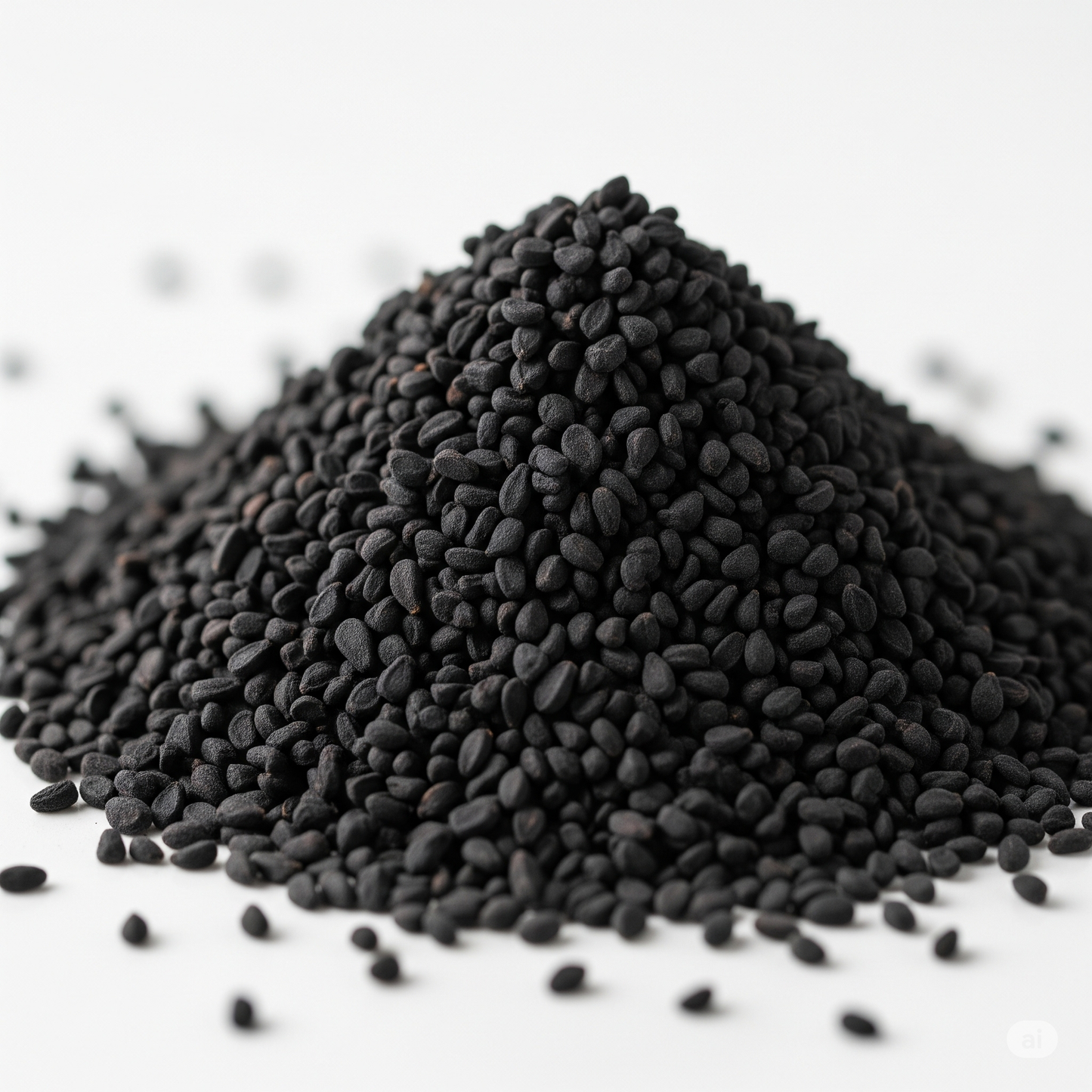Wadi
Black cumin
Black cumin
Couldn't load pickup availability
Primary Uses:
1. Culinary uses:
- Ground black cumin is used as a spice in many Middle Eastern and Indian dishes
- Whole black cumin seeds are often added to breads, pastries, and pickles for flavor and texture
2. Flavoring uses:
- Black cumin can be used to add a warm, earthy flavor to soups, stews, and curries
- It can also be used to flavor marinades and rubs for meats and vegetables
3. Aroma uses:
- Black cumin has a strong, pungent aroma that can be used to add depth to perfumes and fragrances
- It can also be used in aromatherapy to promote relaxation and reduce stress.
Other Uses:
1. Medicinal uses: Black cumin is used in traditional medicine to treat a variety of ailments, including digestive disorders, respiratory problems, skin conditions, and immune system disorders.
2. Religious uses: Black cumin is mentioned in the Bible and is believed to have been used by the Prophet Muhammad as a healing herb. It is also used in some Islamic and Jewish rituals.
3. Ornamental uses: Black cumin is sometimes grown as an ornamental plant for its attractive flowers and foliage.
4. Insect repellent: Black cumin oil is believed to repel insects and is sometimes used as a natural insecticide.
5. Dyeing agent: Black cumin seeds can be used to produce a natural dye that is used to color textiles.
6. Folklore uses: Black cumin has been used in folklore and superstition for centuries. It is believed to have protective properties and is sometimes used in spells and rituals.
7. Culinary garnish: Black cumin seeds are sometimes used as a garnish in Middle Eastern and Indian cuisine. They have a slightly bitter, nutty flavor and are often used to flavor breads, curries, and other dishes.
Caution:
1. Allergic reactions: Some people may experience allergic reactions to black cumin, which can cause symptoms such as skin rashes, hives, and difficulty breathing.
2. Interference with medication: Black cumin may interfere with certain medications, including blood thinners, diabetes medications, and antihypertensive drugs.
3. Gastrointestinal problems: Consuming large amounts of black cumin may cause gastrointestinal problems such as nausea, vomiting, and diarrhea.
4. Low blood pressure: Black cumin may lower blood pressure, which can be dangerous for people with low blood pressure or those taking medication to lower blood pressure.
5. Pregnancy and breastfeeding: Pregnant and breastfeeding women should avoid black cumin as it may have adverse effects on the fetus or infant.
6. Liver damage: In rare cases, black cumin may cause liver damage, especially when consumed in large amounts or for an extended period.
Share


